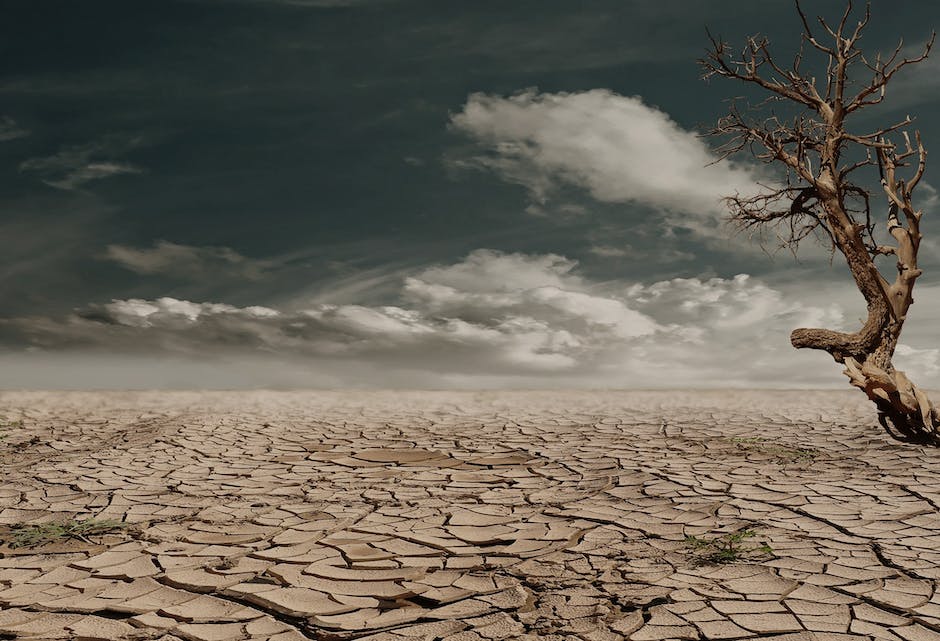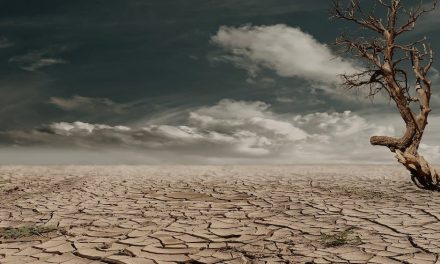Table of Contents
- Introduction
- The Role of Climate Change in Shaping Leadership Strategies in the Arab World
- Adapting Leadership Approaches to Address Climate Change Challenges in the Arab World
- The Importance of Sustainable Leadership Practices in the Face of Climate Change in the Arab World
- Exploring the Link Between Climate Change and Effective Leadership in the Arab World
- Q&A
- Conclusion
Navigating a changing climate: Adapting leadership strategies in the Arab World.
Introduction
Climate change is a global phenomenon that poses significant challenges to various aspects of society, including leadership strategies. In the Arab world, where countries are particularly vulnerable to the impacts of climate change, understanding its effects on leadership strategies is crucial. This introduction aims to explore the impact of climate change on leadership strategies in the Arab world, highlighting the need for adaptive and sustainable approaches to address the complex challenges posed by a changing climate.
The Role of Climate Change in Shaping Leadership Strategies in the Arab World

The Arab world is facing numerous challenges due to climate change, and these challenges are significantly shaping leadership strategies in the region. Climate change is not only affecting the environment but also the social, economic, and political aspects of Arab societies. As a result, leaders in the Arab world are being forced to adapt their strategies to address the impacts of climate change and ensure the sustainability and resilience of their countries.
One of the key ways in which climate change is shaping leadership strategies in the Arab world is through the need for sustainable development. Arab countries heavily rely on natural resources, such as oil and gas, for their economic growth. However, climate change is threatening these resources, as rising temperatures and changing weather patterns can lead to decreased oil and gas production. As a result, leaders in the Arab world are increasingly focusing on diversifying their economies and investing in renewable energy sources. This shift towards sustainable development requires leaders to adopt new strategies and policies that promote clean energy and reduce greenhouse gas emissions.
Another way in which climate change is impacting leadership strategies in the Arab world is through the need for adaptation and resilience. Arab countries are particularly vulnerable to the impacts of climate change, such as rising sea levels, extreme weather events, and water scarcity. These challenges pose significant risks to the social and economic stability of the region. As a result, leaders in the Arab world are prioritizing adaptation and resilience measures to protect their countries and communities. This includes investing in infrastructure that can withstand extreme weather events, implementing water management strategies, and developing early warning systems for natural disasters. These adaptation and resilience strategies require leaders to collaborate with international organizations, experts, and other countries to share knowledge and resources.
Furthermore, climate change is also influencing leadership strategies in the Arab world through the need for international cooperation. The impacts of climate change do not respect national borders and require collective action to address effectively. Arab leaders are recognizing the importance of international cooperation in mitigating and adapting to climate change. This includes participating in global climate change negotiations, sharing best practices, and collaborating on research and development of climate-friendly technologies. By engaging in international cooperation, Arab leaders can leverage the expertise and resources of other countries to address the challenges posed by climate change.
In conclusion, climate change is significantly shaping leadership strategies in the Arab world. The need for sustainable development, adaptation and resilience, and international cooperation are all driving leaders in the region to adopt new strategies and policies. These strategies aim to address the impacts of climate change, ensure the sustainability and resilience of Arab countries, and protect the well-being of their citizens. As climate change continues to pose challenges, it is crucial for leaders in the Arab world to remain proactive and innovative in their approach to addressing this global issue. By doing so, they can pave the way for a more sustainable and resilient future for their countries and the region as a whole.
Adapting Leadership Approaches to Address Climate Change Challenges in the Arab World
The Arab world is facing numerous challenges due to climate change, and these challenges require leaders to adapt their strategies in order to effectively address them. Climate change is a global issue that affects every region, but its impact on the Arab world is particularly significant. Rising temperatures, water scarcity, and extreme weather events are just a few of the consequences of climate change that the region is grappling with. In order to mitigate these challenges, leaders in the Arab world must adopt new approaches to leadership that prioritize sustainability and resilience.
One key aspect of adapting leadership approaches to address climate change challenges in the Arab world is the need for increased collaboration and cooperation. Climate change is a complex issue that requires a collective effort to tackle. Leaders must work together across borders and sectors to develop and implement effective strategies. This means fostering partnerships between governments, businesses, civil society organizations, and international institutions. By working together, leaders can pool resources, share knowledge, and coordinate efforts to address the impacts of climate change.
Another important aspect of adapting leadership approaches is the need for long-term thinking and planning. Climate change is not a short-term problem that can be solved with quick fixes. It requires leaders to think beyond their immediate term in office and consider the long-term implications of their decisions. This means investing in sustainable infrastructure, promoting renewable energy sources, and implementing policies that prioritize environmental conservation. Leaders must also consider the needs and interests of future generations, ensuring that their actions today do not compromise the well-being of future populations.
Leaders in the Arab world must also prioritize education and awareness-raising as part of their climate change strategies. Many people in the region may not fully understand the causes and consequences of climate change, and this lack of awareness can hinder efforts to address the issue. Leaders must invest in education and public awareness campaigns to ensure that people are informed about the impacts of climate change and the actions they can take to mitigate them. This includes promoting sustainable lifestyles, encouraging energy conservation, and supporting initiatives that promote environmental stewardship.
In addition to collaboration, long-term thinking, and education, leaders in the Arab world must also prioritize adaptation and resilience. Climate change is already causing significant disruptions to the region, and leaders must be prepared to adapt to these changes. This means investing in infrastructure that can withstand extreme weather events, developing early warning systems for natural disasters, and implementing policies that promote climate resilience. By prioritizing adaptation, leaders can help their communities and economies better withstand the impacts of climate change and recover more quickly from its effects.
In conclusion, climate change poses significant challenges for the Arab world, and leaders must adapt their strategies to effectively address these challenges. This requires increased collaboration and cooperation, long-term thinking and planning, education and awareness-raising, and a focus on adaptation and resilience. By adopting these approaches, leaders in the Arab world can help mitigate the impacts of climate change and build a more sustainable and resilient future for their countries and communities.
The Importance of Sustainable Leadership Practices in the Face of Climate Change in the Arab World
The Arab world is facing a significant challenge in the form of climate change. Rising temperatures, extreme weather events, and water scarcity are just a few of the consequences that this region is grappling with. As a result, leadership strategies in the Arab world need to adapt to this new reality and prioritize sustainable practices.
One of the key reasons why sustainable leadership practices are crucial in the face of climate change is the need to mitigate its impact. The Arab world is particularly vulnerable to the effects of climate change due to its arid climate and heavy reliance on agriculture. By adopting sustainable practices, leaders can help reduce greenhouse gas emissions, conserve water resources, and promote renewable energy sources. This not only helps protect the environment but also ensures the long-term sustainability of the region’s economy.
Furthermore, sustainable leadership practices can also help build resilience in the face of climate change. By investing in climate adaptation measures, leaders can help communities and businesses better withstand the impacts of extreme weather events. This includes implementing early warning systems, improving infrastructure, and promoting sustainable agriculture practices. By doing so, leaders can minimize the social and economic disruptions caused by climate change and ensure the well-being of their citizens.
In addition to mitigating and adapting to climate change, sustainable leadership practices also have the potential to drive innovation and economic growth. The transition to a low-carbon economy presents numerous opportunities for job creation and technological advancements. By embracing sustainable practices, leaders can foster a culture of innovation and entrepreneurship, attracting investment and creating new industries. This not only helps diversify the economy but also positions the Arab world as a leader in the global fight against climate change.
However, implementing sustainable leadership practices in the Arab world is not without its challenges. One of the main obstacles is the lack of awareness and understanding of climate change issues among leaders and the general public. Many still view climate change as a distant problem that does not require immediate action. Therefore, leaders need to prioritize education and awareness campaigns to ensure that the urgency of the issue is understood by all.
Another challenge is the need for financial resources to support sustainable initiatives. While the Arab world is rich in natural resources, the transition to a low-carbon economy requires significant investments. Leaders need to explore innovative financing mechanisms, such as green bonds and public-private partnerships, to fund sustainable projects. Additionally, international cooperation and support can play a crucial role in providing the necessary resources and expertise.
In conclusion, the impact of climate change on leadership strategies in the Arab world cannot be ignored. Sustainable leadership practices are essential for mitigating the effects of climate change, building resilience, and driving economic growth. However, challenges such as lack of awareness and financial resources need to be addressed. By prioritizing sustainable practices and investing in education and innovation, leaders in the Arab world can navigate the challenges posed by climate change and ensure a sustainable future for their countries and communities.
Exploring the Link Between Climate Change and Effective Leadership in the Arab World
Climate change is a global issue that affects every corner of the world, including the Arab World. As temperatures rise, sea levels increase, and extreme weather events become more frequent, the impact of climate change on the region is becoming increasingly evident. This has significant implications for leadership strategies in the Arab World, as leaders must navigate the challenges posed by climate change and develop effective strategies to mitigate its effects.
One of the key ways in which climate change impacts leadership strategies in the Arab World is through its effect on the economy. The region is heavily dependent on oil and gas exports, which are major contributors to greenhouse gas emissions. As the world transitions to cleaner energy sources, the demand for fossil fuels is expected to decline, posing a significant challenge for Arab leaders. They must diversify their economies and invest in renewable energy sources to ensure long-term sustainability. This requires strong leadership and a clear vision for the future.
In addition to economic challenges, climate change also poses social and political challenges for leaders in the Arab World. Rising temperatures and water scarcity can lead to increased social unrest and political instability. As resources become scarce, competition for water and arable land may intensify, leading to conflicts within and between countries. Leaders must be able to address these challenges and find solutions that promote stability and cooperation.
Furthermore, climate change has a direct impact on the environment and natural resources in the Arab World. The region is home to unique ecosystems and biodiversity, which are at risk due to rising temperatures and changing rainfall patterns. Leaders must prioritize environmental conservation and sustainable development to protect these valuable resources for future generations. This requires a shift in mindset and a commitment to long-term planning.
To effectively address the challenges posed by climate change, leaders in the Arab World must adopt a proactive and collaborative approach. This includes engaging with international organizations and other countries to share knowledge and best practices. By working together, leaders can develop innovative solutions and implement effective policies that mitigate the effects of climate change and promote sustainable development.
Education and awareness are also crucial in addressing the impact of climate change on leadership strategies in the Arab World. Leaders must prioritize educating their citizens about the causes and consequences of climate change, as well as the steps they can take to reduce their carbon footprint. This includes promoting renewable energy, energy efficiency, and sustainable lifestyles. By empowering their citizens with knowledge, leaders can foster a sense of ownership and collective responsibility for addressing climate change.
In conclusion, climate change has a profound impact on leadership strategies in the Arab World. Leaders must navigate economic, social, and environmental challenges posed by climate change and develop effective strategies to mitigate its effects. This requires a proactive and collaborative approach, as well as a commitment to education and awareness. By addressing climate change head-on, leaders in the Arab World can ensure a sustainable and prosperous future for their countries and the region as a whole.
Q&A
1. How does climate change impact leadership strategies in the Arab World?
Climate change affects leadership strategies in the Arab World by necessitating the development of sustainable and adaptive approaches to address environmental challenges.
2. What are some specific challenges faced by leaders in the Arab World due to climate change?
Leaders in the Arab World face challenges such as water scarcity, rising temperatures, desertification, and extreme weather events, which require effective strategies to mitigate and adapt to these impacts.
3. How can leaders in the Arab World adapt their strategies to address climate change?
Leaders in the Arab World can adapt their strategies by promoting renewable energy sources, implementing sustainable agricultural practices, investing in water management systems, and fostering international cooperation to tackle climate change.
4. What are the potential benefits of addressing climate change for leadership in the Arab World?
Addressing climate change can lead to benefits such as improved resource management, enhanced resilience to environmental risks, increased economic diversification through green technologies, and strengthened international reputation as leaders in sustainability.
Conclusion
In conclusion, climate change has significant implications for leadership strategies in the Arab world. The region is particularly vulnerable to the effects of climate change, including water scarcity, extreme temperatures, and rising sea levels. These challenges require leaders to adopt adaptive and sustainable approaches to address the environmental, social, and economic impacts of climate change. Effective leadership strategies should prioritize climate resilience, promote renewable energy sources, and foster international cooperation to mitigate the adverse effects of climate change in the Arab world.





Recent Comments